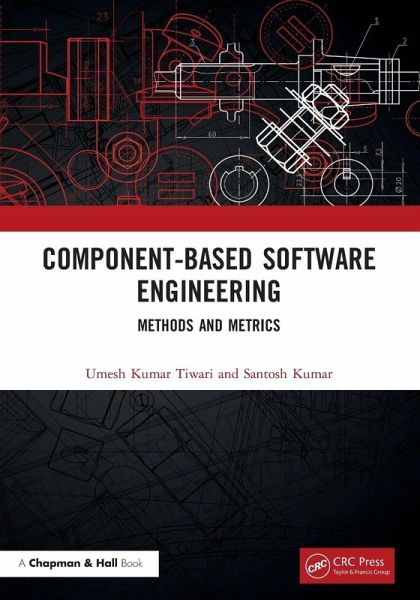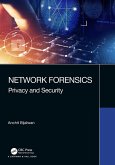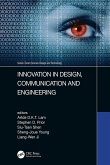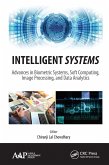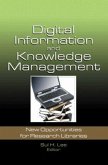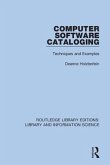- Broschiertes Buch
- Merkliste
- Auf die Merkliste
- Bewerten Bewerten
- Teilen
- Produkt teilen
- Produkterinnerung
- Produkterinnerung
Component-Based Software Engineering is a distinctive paradigm of Software Engineering which promotes the development of software systems by picking suitable pre-built software work-products called 'components'. This book is beneficial for students of computer science and software engineering.
Andere Kunden interessierten sich auch für
![Network Forensics Network Forensics]() Anchit BijalwanNetwork Forensics72,99 €
Anchit BijalwanNetwork Forensics72,99 €![Innovation in Design, Communication and Engineering Innovation in Design, Communication and Engineering]() Innovation in Design, Communication and Engineering95,99 €
Innovation in Design, Communication and Engineering95,99 €![Intelligent Systems Intelligent Systems]() Intelligent Systems110,99 €
Intelligent Systems110,99 €![Digital Information and Knowledge Management Digital Information and Knowledge Management]() Digital Information and Knowledge Management86,99 €
Digital Information and Knowledge Management86,99 €![Computer Software Cataloging Computer Software Cataloging]() Computer Software Cataloging52,99 €
Computer Software Cataloging52,99 €![Managing Innovation and Cultural Management in the Digital Era Managing Innovation and Cultural Management in the Digital Era]() Managing Innovation and Cultural Management in the Digital Era58,99 €
Managing Innovation and Cultural Management in the Digital Era58,99 €![Information Practice in Science and Technology Information Practice in Science and Technology]() Mary SchlembachInformation Practice in Science and Technology53,99 €
Mary SchlembachInformation Practice in Science and Technology53,99 €-
-
-
Component-Based Software Engineering is a distinctive paradigm of Software Engineering which promotes the development of software systems by picking suitable pre-built software work-products called 'components'. This book is beneficial for students of computer science and software engineering.
Hinweis: Dieser Artikel kann nur an eine deutsche Lieferadresse ausgeliefert werden.
Hinweis: Dieser Artikel kann nur an eine deutsche Lieferadresse ausgeliefert werden.
Produktdetails
- Produktdetails
- Verlag: CRC Press
- Seitenzahl: 206
- Erscheinungstermin: 7. Oktober 2024
- Englisch
- Abmessung: 254mm x 178mm x 12mm
- Gewicht: 399g
- ISBN-13: 9780367626167
- ISBN-10: 0367626160
- Artikelnr.: 71711136
- Herstellerkennzeichnung
- Libri GmbH
- Europaallee 1
- 36244 Bad Hersfeld
- gpsr@libri.de
- Verlag: CRC Press
- Seitenzahl: 206
- Erscheinungstermin: 7. Oktober 2024
- Englisch
- Abmessung: 254mm x 178mm x 12mm
- Gewicht: 399g
- ISBN-13: 9780367626167
- ISBN-10: 0367626160
- Artikelnr.: 71711136
- Herstellerkennzeichnung
- Libri GmbH
- Europaallee 1
- 36244 Bad Hersfeld
- gpsr@libri.de
Umesh Kumar Tiwari is working as an Associate Professor in Department of Computer Science and Engineering in Graphic Era (Deemed to be University), Dehradun. He had received Ph.D from Graphic Era (Deemed to be University) in 2016 and Master of Computer Applications in 2005. He has more than 13 years of research and teaching experience in AICTE/UGC approved universities and colleges at Undergraduate and Postgraduate levels. He is author of 2 books including "Principles of Programming Languages" and "Paradigms of Programming Languages". He is supervising Ph.D. and M. Tech students in their Thesis. He has published more than 25 research papers in National and International Journals/conferences in the field of Software Engineering, Wireless Networks, WSN, and IoT. His research interest includes Component Based Software Engineering, Wireless Networks, WSN, IoT, and Agile Methodology. Santosh Kumar received Ph.D. from IIT Roorkee (India) in 2012, M. Tech. (CSE) from Aligarh Muslim University, Aligarh (India) in 2007 and B.E. (IT) from C.C.S. University, Meerut (India) in 2003. He has more than 13 years of experience in teaching/research of UG (B. Tech.) and PG (M. Tech) level courses as a Lecturer/Assistant Professor/Associate Professor in various academic /research organizations. He has supervised 01 Ph.D. Thesis, 22 M. Tech Thesis, 18 B. Tech projects and presently mentoring 06 Ph.D. students (singly and jointly) and 08 B. Tech. students. He has also completed a consultancy project titled "MANET Architecture Design for Tactical Radios" of DRDO, Dehradun in between 2009-2011. He is an active reviewer board member in various National/International Journals (i.e. IEEE Transection on Computational Social Systems, IEEE Access, ACM Transection on Cyber-physical system, Soft Computing-Springer etc.) and Conferences. He has memberships of ACM (Senior Member), IEEE, IAENG, ACEEE, ISOC (USA) and contributed more than 50 research papers in National and International Journals/conferences in the field of Software Engineering, Wireless Networks, WSN, IoT and Machine Learning. Currently he is holding position of Associate Professor in the Graphic Era Deemed to be University, Dehradun (India). His research interest includes Software Engineering, Wireless Networks, WSN, IoT and Machine Learning.
1. Introduction to Software Engineering and Component-Based
Software
Engineering.............................................................................................................1
2. Component-Based Development
Models.........................................................................37
3. Major Issues in Component-Based Software
Engineering...........................................53
4. Reusability Metric-Based Selection and Verification of
Components......................101
5. Interaction and Integration Complexity Metrics for Component-Based
Software.................................................................................................................................127
6. Component-Based Software Testing Techniques and Test-Case
Generation
Methods...........................................................................................................149
7. Estimating Execution Time and Reliability of Component-Based
Software.................................................................................................................................177
Software
Engineering.............................................................................................................1
2. Component-Based Development
Models.........................................................................37
3. Major Issues in Component-Based Software
Engineering...........................................53
4. Reusability Metric-Based Selection and Verification of
Components......................101
5. Interaction and Integration Complexity Metrics for Component-Based
Software.................................................................................................................................127
6. Component-Based Software Testing Techniques and Test-Case
Generation
Methods...........................................................................................................149
7. Estimating Execution Time and Reliability of Component-Based
Software.................................................................................................................................177
1. Introduction to Software Engineering and Component-Based
Software
Engineering.............................................................................................................1
2. Component-Based Development
Models.........................................................................37
3. Major Issues in Component-Based Software
Engineering...........................................53
4. Reusability Metric-Based Selection and Verification of
Components......................101
5. Interaction and Integration Complexity Metrics for Component-Based
Software.................................................................................................................................127
6. Component-Based Software Testing Techniques and Test-Case
Generation
Methods...........................................................................................................149
7. Estimating Execution Time and Reliability of Component-Based
Software.................................................................................................................................177
Software
Engineering.............................................................................................................1
2. Component-Based Development
Models.........................................................................37
3. Major Issues in Component-Based Software
Engineering...........................................53
4. Reusability Metric-Based Selection and Verification of
Components......................101
5. Interaction and Integration Complexity Metrics for Component-Based
Software.................................................................................................................................127
6. Component-Based Software Testing Techniques and Test-Case
Generation
Methods...........................................................................................................149
7. Estimating Execution Time and Reliability of Component-Based
Software.................................................................................................................................177

